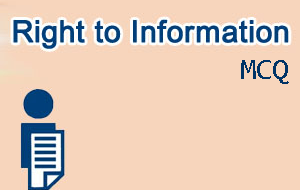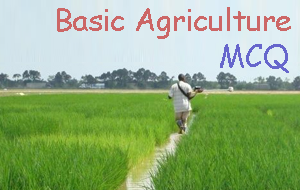Child Development and Pedagogy – PSTET Practice Set – 6 (MCQs)
Friends, below are the list of important MCQs of Punjab State Teacher Eligibility Test  (PSTET) – Child Development and Pedagogy
- Child Development (Primary School Child)
- Concept of Inclusive education and understanding children with special needs
- Learning and Pedagogy.
Request – If you get any answer wrong. please let us know, we will correct it
Practice Set – 1 | Practice Set – 2 | Practice Set – 3 | Practice Set – 4 | Practice Set -5 | Practice Set – 6
Q-1 In order to develop the spirit of labour in students
a) The teacher himself should indulge in labour
b) The teacher should deliver lectures on the importance of labour
c) Students should be given opportunities to do labour from time to time
d) Students should be given examples of laboring people
Q-2 If heredity is an important determinant of a specific behaviour, what prediction can we make about expression of the behaviour in identical twins reared apart compared to its expression in fraternal twins reared apart?
a) Fraternal twins will express the behaviour more similarly than identical twins.
b) There will be little similarity in the expression of the behaviour in either set of twins.
c) Identical twins will express the behaviour more similarly than fraternal twins.
d) The behaviour will be expressed as similarly by identical twins as it is by fraternal twins.
Q-3 Frobel’s most important contribution to education was his development of the
a) Vocational School
b) Public high School
c) Kindergarten
d) Latin School
Q-4 The most important indicator of quality of education in a school is
a) Infrastructural facilities of a school
b) Classroom system
c) Text-books and Teaching-learning material
d) None of these
Q-5 A creative learner refers to one who is
a) very talented in drawing and painting
b) highly intelligent
c) capable of scoring consistently good marks in tests
d) good at lateral thinking and problem solving
Q-6 Every learner is unique means that
a) No two learners are alike in their abilities, interests and talents
b) Learners do not have any common qualities, nor do they share common goals
c) A common curriculum for all learners is not possible
d) It is impossible to develop the potential of learners in a heterogeneous class
Q-7 Environmental education should be taught in schools because:
a) it will affect environmental pollution
b) it is important part of life
c) it will provide job to teachers
d) we cannot escape from environment
Q-8 Individual learners differ from each other in
a) principles of growth and development
b) rate of development
c) sequence of development
d) general capacity for development
Q-9 At primary level, it is better to teach in mother language because:
a) it develops self-confidence in children
b) it makes learning easy
c) it is helpful in intellectual development
d) it helps children in learning in natural atmosphere
Q-10 The process whereby the genetic factors limit an individual’s responsiveness to the environment is known as:
a) Canalization
b) Discontinuity
c) Differentiation
d) Range of reaction
Q-11 In order to develop the spirit of labour in students:
a) The teacher himself should indulge in labour
b) The teacher should deliver lectures on the importance of labour
c) Students should be givenopportunities to do labour from time to tim
d) Students should be given examples of laboring people
Q-12 Constructivism as a theory
a) focuses on the role of imitation
b) emphasises the role of the learner in constructing his own view of the world
c) emphasises on memorising information and testing through recall
d) emphasises on the dominant role of the teacher
Q-13 Organismic theories of development hold that
a) Psychological structures and processes within the child help determine his/her development.
b) Physical structures and processes within the child help determine his/her development.
c) Passively developed structures and processes within the child help determine his/her development.
d) Slowly developed structures and processes within the child help determine his/her development.
Q-14 Knowledge of child psychology is a must for a primary teacher. That is because
a) It helps in making children disciplined
b) The examination result is improved
c) It becomes a convenient mode for motivating children
d) It helps the teacher in understanding the behavior of children
Q-15 The current movement of behavior modification, wherein tokens are awarded for correct responses, is a reflection of:
a) Herbart’s Five Steps
b) Lock’s Tabula rasa
c) Thorndike’s Law of Effect
d) Thorndike’s Law of Exercise
Q-16 A physically-challenged student is very keen on participating during the Annual sports in school. How should you handle this issue?
a) Discourage him/her from being present on that day
b) Let him/her be involved in record keeping in the field
c) get him/her to the cheering team
d) Give him/her a duty that does not involve being in the sports field
Q-17 One of the ways to deal with the development of sexuality in children during puberty is defense mechanism, like
a) Sublimation
b) Projection
c) Compensation
d) Rationalization
Q-18 What a teacher should do if a student gives wrong answer of a question in a class?
a) He will another question to the student
b) He will ask another student
c) He will scold the student
d) He will explain, why the answer given by the student is wrong
Q-19 Is the ratio of mental age to the chronological age multiplied by 100.
a) Emotional quotient
b) Intelligence quotient
c) Both
d) None of these
Q-20 Intelligence testing is useful for knowing.
a) Individual difference
b) Mental retardation
c) Educational backwardness
d) All of these
Q-21 Development of concepts is primarily a part of
a) emotional development
b) intellectual development
c) physical development
d) social development
Q-22 Heredity is considered as a social structure.
a) primary
b) secondary
c) dynamic
d) static
Q-23 According to Piaget, during the first stage of development (birth to about 2 years age), a child learns best
a) by using the senses
b) by comprehending neutral words
c) by thinking in an abstract fashion
d) by applying newly acquired knowledge of language
Q-24 If any girl child does not come to school regularly you will
a) no bother
b) struck off her name
c) complain to the Principal
d) meet the parents and en-courage themÂ
Q-25 In co-education you won’t to :
a) make separate rows of boys and girls
b) you give preference to boys over girls
c) you give preference to noneÂ
d) you deal according to need
Q-26 One of the basic principles of socializing individuals is
a) religion
b) caste
c) educationalÂ
d) imitation
Q-27 A teacher asks the questions in the class to:
a) keep students busy
b) maintain discipline
c) attract student’s attention
d) teach
Q-28 To whom the responsibility of organization of curricular activities should be stored with?
a) The principal
b) The teacher who is appointed for this work
c) The teachers who take interest in it
d) All the teachers
Q-29 The experienced teachers do not require the detailed lesson plan of a topic because:
a) They can teach in a good manner without its help
b) The number of curious students is very poor in the class
c) When they commit some mistake, they do not face any challenge from their students
d) They can equip themselves with brief outline as they gain specialization in it through experience
Q-30 The problem of drop-out in which students leave their schooling in early years can be tackled in a better way through
a) Reduction of the weight of curriculum
b) Sympathy of teachers
c) Attractive environment of the school
d) Encouragement of the students
Q-31 Which of the’ skills do you consider most essential for a teacher?
a) encourage children to search for knowledge
b) have all the information for the children
c) ability to make children memorize materials
d) enable children to do well in tests
Q-32 If any girl child does not corner to school regularly you will
a) no bother
b) struck off her name
c) complain to the Principal
d) meet the parents and en-courage them
Q-33 How does a teacher can improve the attention of a student?
a) By self-monitoring
b) Monitoring by Head Master/Principal
c) By observation
d) By introducing interesting ways of teaching, e.g. through teaching aid etc)Â
Q-34 A group of students are found to be harassing another student. What should be your reaction?
a) Punish the students
b) Send to their parents
c) Counsel the students individually
d) Give them a severe warning
Practice Set – 1 | Practice Set – 2 | Practice Set – 3 | Practice Set – 4 | Practice Set -5 | Practice Set – 6













recheck question no 7
Thanks Maya, It answered by mistake, I have corrected it
question 12 answer is not given.
please recheck question no.9
right answer is option D
Please recheck question no.18…i think its ans will Option B
Please recheck question no.18…i think its ans will Option B and also recheck question no.25
Yes, I changed answer of Q-25. I am not sure about Q-18. I think it is correct